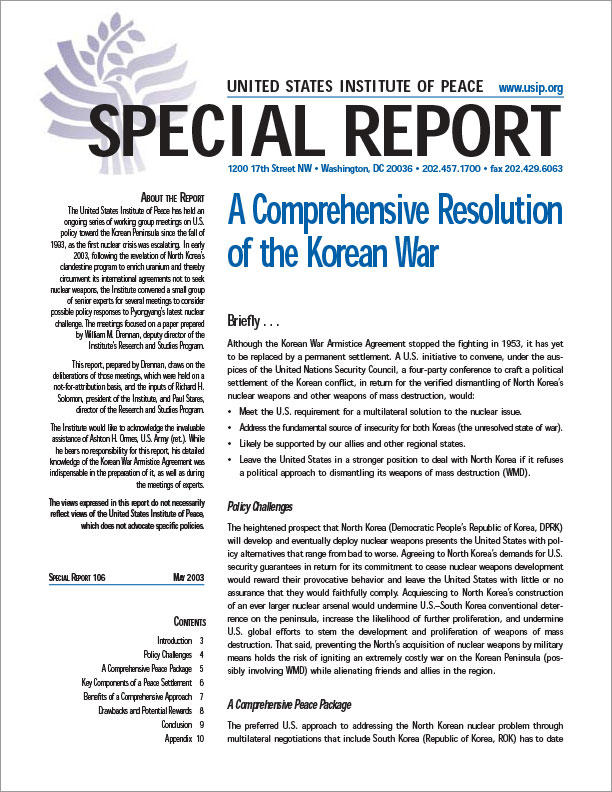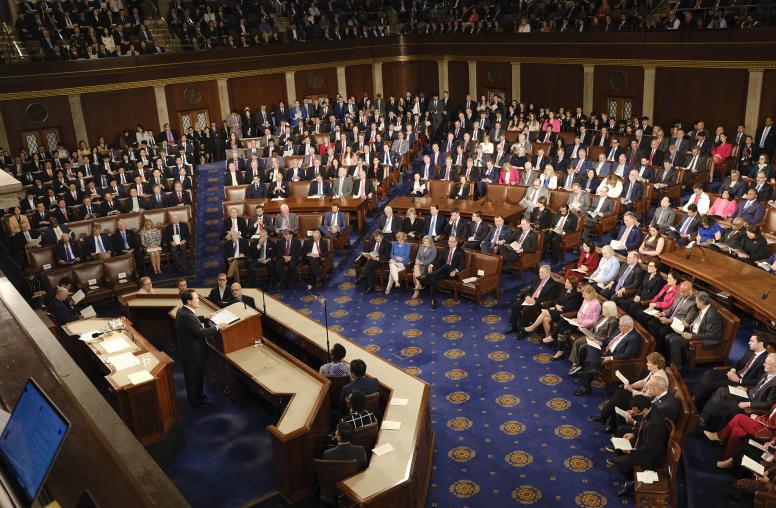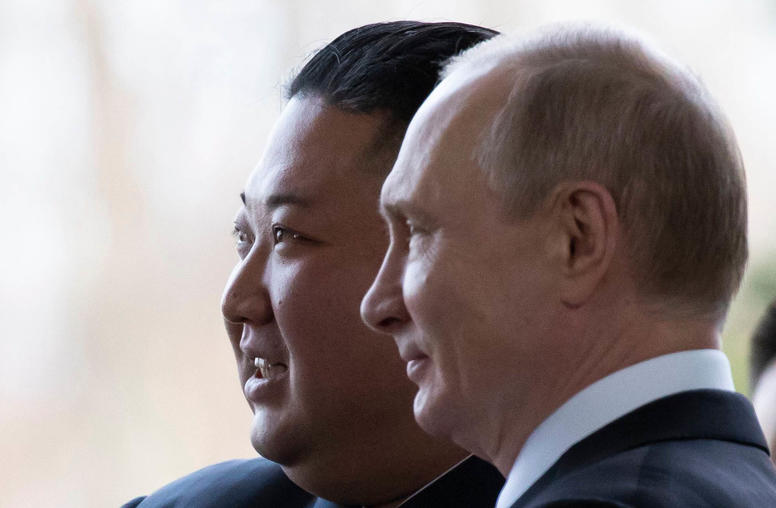A Comprehensive Resolution of the Korean War

Summary
Although the Korean War Armistice Agreement stopped the fighting in 1953, it has yet to be replaced by a permanent settlement. A U.S. initiative to convene, under the auspices of the United Nations Security Council, a four-party conference to craft a political settlement of the Korean conflict, in return for the verified dismantling of North Korea's nuclear weapons and other weapons of mass destruction, would:
- Meet the U.S. requirement for a multilateral solution to the nuclear issue.
- Address the fundamental source of insecurity for both Koreas (the unresolved state of war).
- Likely be supported by our allies and other regional states.
- Leave the United States in a stronger position to deal with North Korea if it refuses a political approach to dismantling its weapons of mass destruction (WMD).
About the Report
The United States Institute of Peace has held an ongoing series of working group meetings on U.S. policy toward the Korean Peninsula since the fall of 1993, as the first nuclear crisis was escalating. In early 2003, following the revelation of North Korea's clandestine program to enrich uranium and thereby circumvent its international agreements not to seek nuclear weapons, the Institute convened a small group of senior experts for several meetings to consider possible policy responses to Pyongyang's latest nuclear challenge. The meetings focused on a paper prepared by William M. Drennan, deputy director of the Institute's Research and Studies Program.
This report, prepared by Drennan, draws on the deliberations of those meetings, which were held on a not-for-attribution basis, and the inputs of Richard H. Solomon, president of the Institute, and Paul Stares, director of the Research and Studies Program.
The Institute would like to acknowledge the invaluable assistance of Ashton H. Ormes, U.S. Army (ret.). While he bears no responsibility for this report, his detailed knowledge of the Korean War Armistice Agreement was indispensable in the preparation of it, as well as during the meetings of experts.
The views expressed in this report do not necessarily reflect views of the United States Institute of Peace, which does not advocate specific policies.



